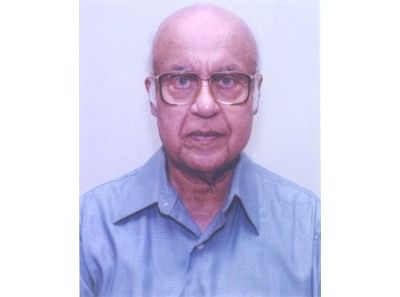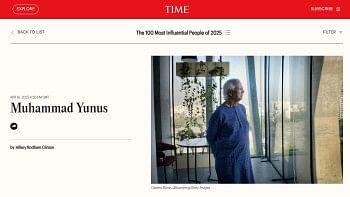Gholam Kibria

It was heartbreaking to learn of the death of Gholam Kibria on August 10 after prolonged illness. He was 80. I was shocked because of the death, not of an individual but of an institution. Late Gholam Kibria was an example of enlightened mind and an amazing personality. A former finance secretary and ex-comptroller and auditor general, he had the rare qualities of wisdom and scholasticism.
Late Gholam Kibria did his B.Sc in Science from Dhaka University in 1955 and joined erstwhile Pakistan Audit and Accounts Service (PAAS) the next year. The reason was to avoid posting in the outlying areas. After independence, he served in Moscow and then was made additional secretary, Ministry of Finance, and became finance secretary in 1980. He joined the World Bank, Washington, on deputation as alternate executive director in 1982. After his return from deputation he again became finance secretary in 1987 and retired the following year. He was comptroller and auditor general (CAG), from 1989 to 1991. After retirement, Gholam Kibria acted as IMF Budget Adviser, Ministry of Finance, Government of Mongolia, and Advisor to the Ministry of Finance, Government of Uzbekistan.
His wisdom and patriotism could hardly be surpassed. As CAG he declined to attend a meeting in Vienna since spending public money for the purpose appeared to him unethical in view of the losses that our country had incurred in terms of lives, materials and money due to a devastating natural calamity at that time.
He became a frequent visitor to the Audit and Accounts Training Academy, later Financial Management Academy (FIMA), to use its library while I was its DG. Always conscious of my limitations, a barrier of formality haunted me, not allowing me to open up. Trying to assure me of my total accessibility to him he once said: "In mutual relationships both ends are equals." He was careful that I did not always say "Yes" without being fully convinced. He stressed on combining temporal knowledge with self-realisation.
He contributed a write-up for the Government Audit Journal, 1996 captioned, "Lifetime Learning: Synoptic suggestions for its adaptation to our purpose." He suggested learning of skills in financial English for international application and certain skills in handling quantitative data with and without paper, calculators and computers that could be summarised as modern literacy and numeracy skills crucial for both government as well as private sector managements. What could be more appropriate in our context to-day?
On occasions, I used to meet the Indian CAG V. N. Kaul. He would invariably ask me about two Kibrias of Bangladesh. One was late Gholam Kibria with whom he got acquainted when he was working at the Indian High Commission in Dhaka. The other gentleman was late S. A. M. S. Kibria, former finance minister, with whom Kaul worked at Escap when he was its executive director.
Late Gholam Kibria never allowed himself to be swayed by divergent views not consistent with what he believed. While engaged in a discussion on the "Kashf Al-Mahjub," the oldest Persian treatise on Sufism written by a great saint of the sub-continent, Ali B. Uthman Al Jullabi Al Hujwiri, popularly known as Data Ganj Bux of Lahore, and translated in English by Reynold A. Nicholson, late Gholam Kibria fully subscribed to the views of the author that no Sufis, not even those who have attained the highest degree of holiness, are exempt from the obligation of obeying religious laws.
He left behind wife, one daughter and two sons. His wife Nadera Begum, an educationist, earned fame as a valiant language movement activist of 1952. Late Gholam Kibria's austere living and amiable disposition made him respectable to all. It is very difficult to forget his ever smiling face reminding us of the great saying: "To smile is a charity." May late Gholam Kibria's soul rest in peace.

 For all latest news, follow The Daily Star's Google News channel.
For all latest news, follow The Daily Star's Google News channel. 



Comments